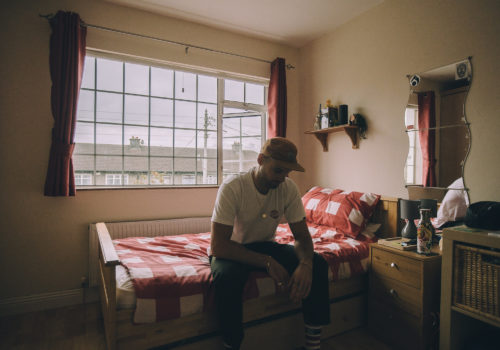The Post Pandemic Report
Words: George Voronov
Artwork: Paul Smith
The Post Pandemic Report is our attempt at foregrounding the dominant narratives that have emerged from a survey of over 1,100 members of the District audience, expert testimonies, as well as our reporting done throughout the pandemic.
Having launched the survey in the closing weeks of 2021, we have amassed over 1,100 responses that reveal key trends for the District audience as they emerge from almost two years of pandemic restrictions.
We are aware that the District audience is not a perfectly comprehensive representation of Irish youth writ-large but they do represent a cross-section of a progressive Irish youth culture that are culturally engaged, socially active, and care deeply about the towns and cities they occupy. We are also pragmatic in the sense that this report is being sent to organisations that work with us. To that end, we believe that a sample of this size holds profound value in terms of what it can teach us about the audience we communicate with.
Put simply, our findings were grim. What is clear is that Irish culture is at a critical point as a generation of young people feel disaffected and disenfranchised. Priced out of their capital and with nowhere to cut loose, tensions are starting to boil over.
Our report is an attempt to codify the insights that we had believed to be true for a long time and communicate them to anyone who will listen. We are deeply passionate about the future of our city, our country, and the many talented young people that call it their home. We hope that our collaborators share that passion and will work with us in order to mitigate the effects of these patterns. We have reformatted the report to be published as an editorial but the original document will also be available below.
Logging Off
People are stuck spending more time on social media despite wanting–now more than ever– to spend less.
While many young people found solace in the digital world during the opening months of the pandemic, the ongoing reliance on social media in the absence of a return to normality has fuelled some worrying patterns. Stuck in an unhealthy relationship with their feeds and without alternative outlets, young people are burning out in growing numbers.
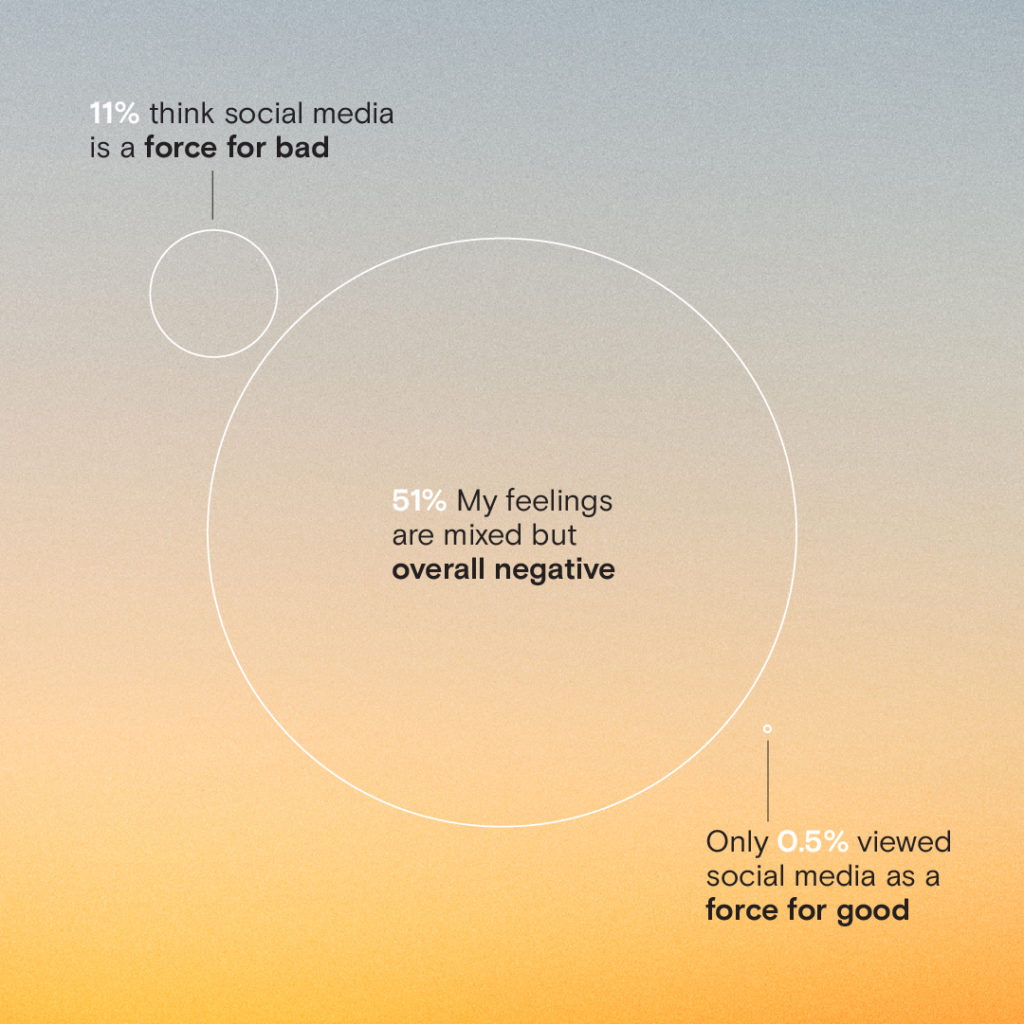
67% of our respondents state that they spend more time on social media now than before the pandemic. When coupled with the fact that 60% also view social media in an overall negative light, this paints a concerning picture of a generation stuck in an unhealthy cycle. Despite most respondents claiming to use socials primarily for staying in touch with friends and family, what emerges from our findings is that instead of bringing people together, socials are pulling them apart. As many as 42% of our audience have had friendships suffer as a result of online political discourse. This heated pitch of digital debate and the rampant spread of misinformation combined with platforms being inundated with advertising has led to more and more people questioning the nature of their digital lives.
Over the first lockdown, most of our respondents got a chance to learn what makes them feel good about themselves as they up-skilled or began a wellness regimen (67%). However, those positive experiences now serve a benchmark for why their current reality feels toxic in comparison. Armed with this realisation, young people are taking action. 90% of our respondents have contemplated getting rid of their social media accounts altogether.
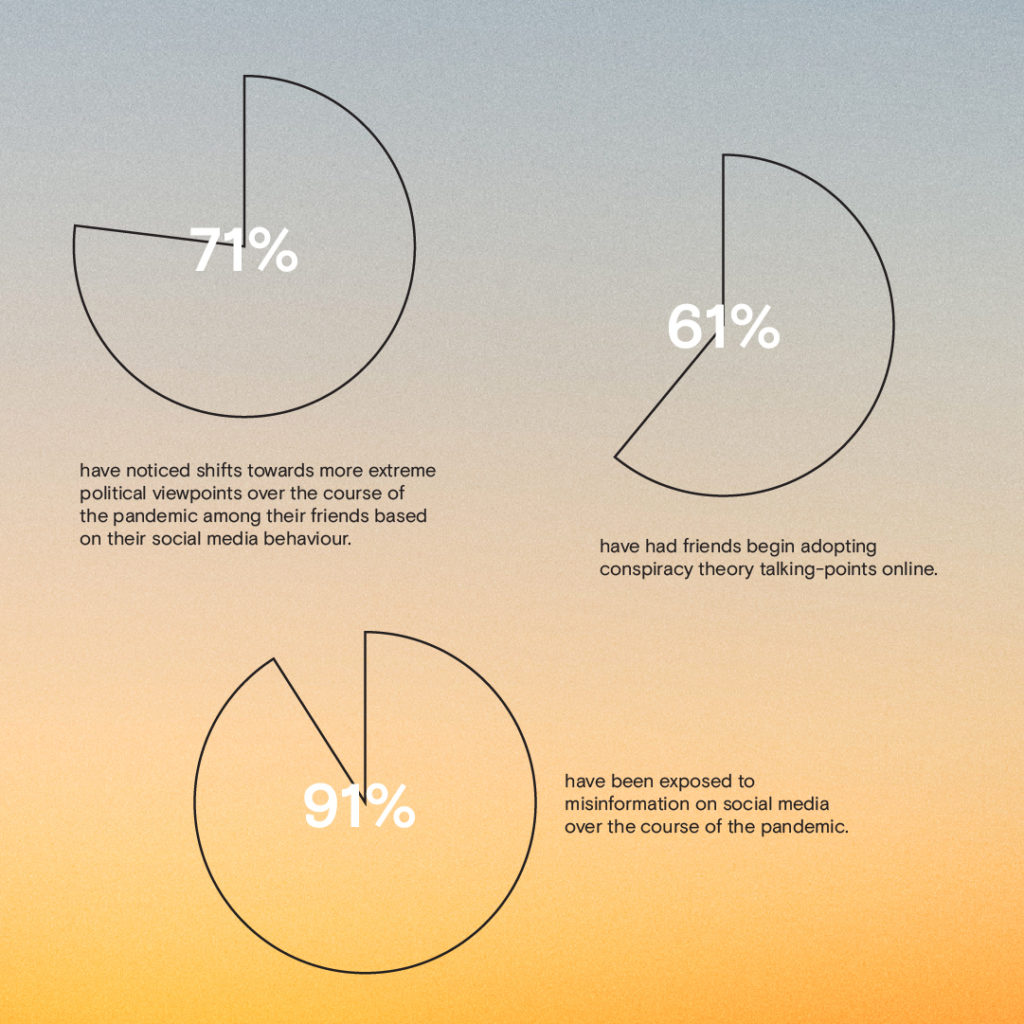
Need for Space
It shouldn’t come as a surprise that there is an unprecedented demand for IRL experiences. We now know that two thirds of our audience prioritise their spending on socialising and events. However, despite this demand, young people are finding that there is a lack of spaces to facilitate it. At a time when the whole country wants to get back to events, it is the importance of venues and spaces that we need to focus on.
As it stands, the availability of nightlife venues is at an all-time low. The last purpose-built venue to open in Dublin was The Wright Venue in 2009. This combined with a wave of club closures starting before –but exacerbated by– the pandemic paints a bleak picture of Dublin nightlife.
Being around people who are having a good time just feels so good I almost forgot. We need real life connections with people we don’t know to thrive.
Anonymous Survey Respondent
Furthermore, this anxiety around the availability of spaces also bleeds over into the public realm as young people feel that they are increasingly excluded from public spaces. This can be seen in the response to the fencing-off of Portobello Plaza last Summer and more recently just before Christmas.
Organisations such as Temporary Pleasure are thinking outside the box and creating ephemeral spaces at a grassroots and DIY level. Similarly, Give Us the Night are pushing for a legislative change to licensing laws in order to lessen the burdens placed on venue owners. When you combine their efforts with the fact that 71% of our respondents say that they now place more importance on spending their income on events and experiences rather than goods or services as a direct result of the pandemic. We can see that people desperately want to connect and have shared experiences but lack the spaces in which they can do so.
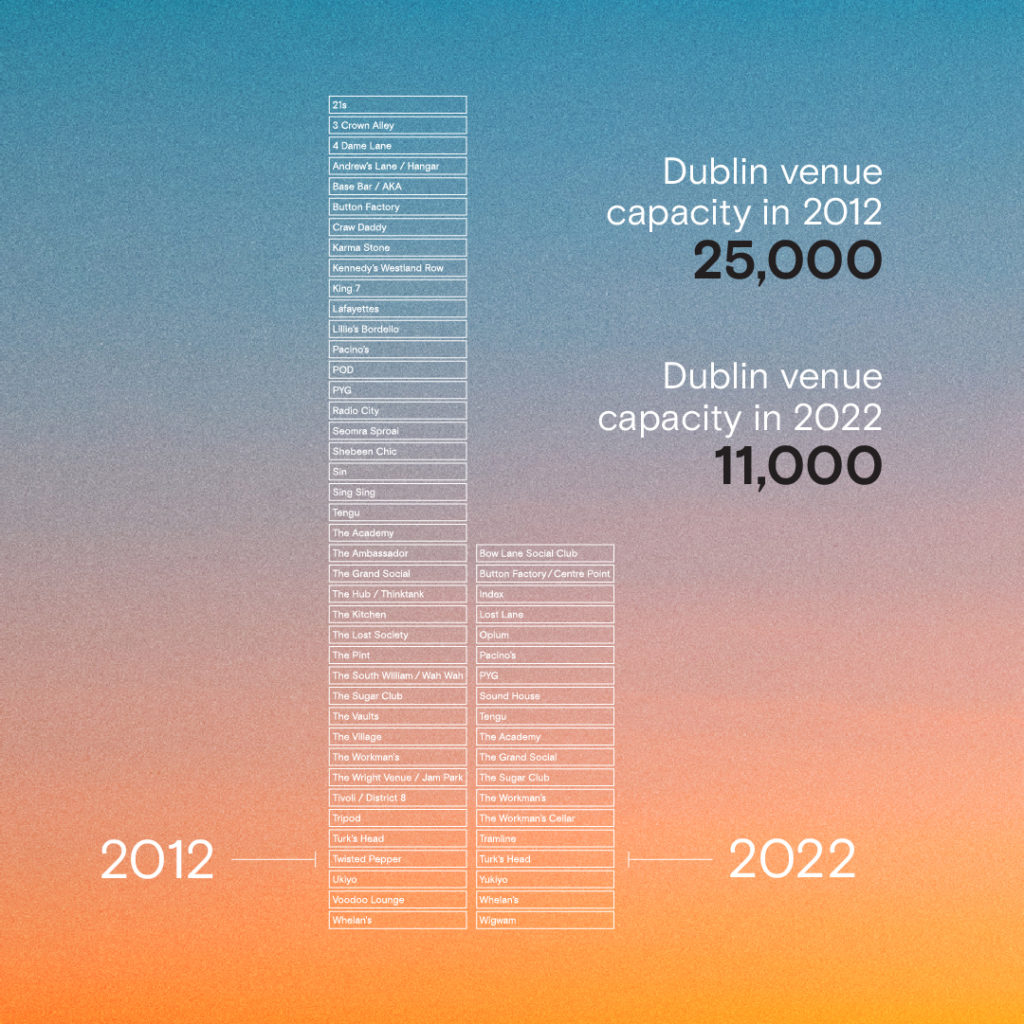
Economics and Emigration
As we have seen from the previous two sections, the pandemic has prompted our audience to ask big questions of themselves.
Across the board, the forced reset of the first lockdown has provoked introspection into how our audience lives and works. Having started considering these fundamental questions, what is becoming abundantly clear is that an increasing proportion of this cohort are profoundly dissatisfied.
Crucial to understanding this phenomenon is the fact that young people in Ireland feel politically disenfranchised. 76% disagreed with the statement “I feel that my concerns are important to the Irish government”. Of those, the vast majority disagreed strongly. Similarly, 89% of our respondents believed that the government had not been successful in tackling the issues that are most important to them. Feeling overlooked and with no solutions to their burning issues in-sight, the youngest generation of creatives are looking to emigrate at a rapid rate. 75% of our survey respondents have contemplated emigrating over the last 18 months.
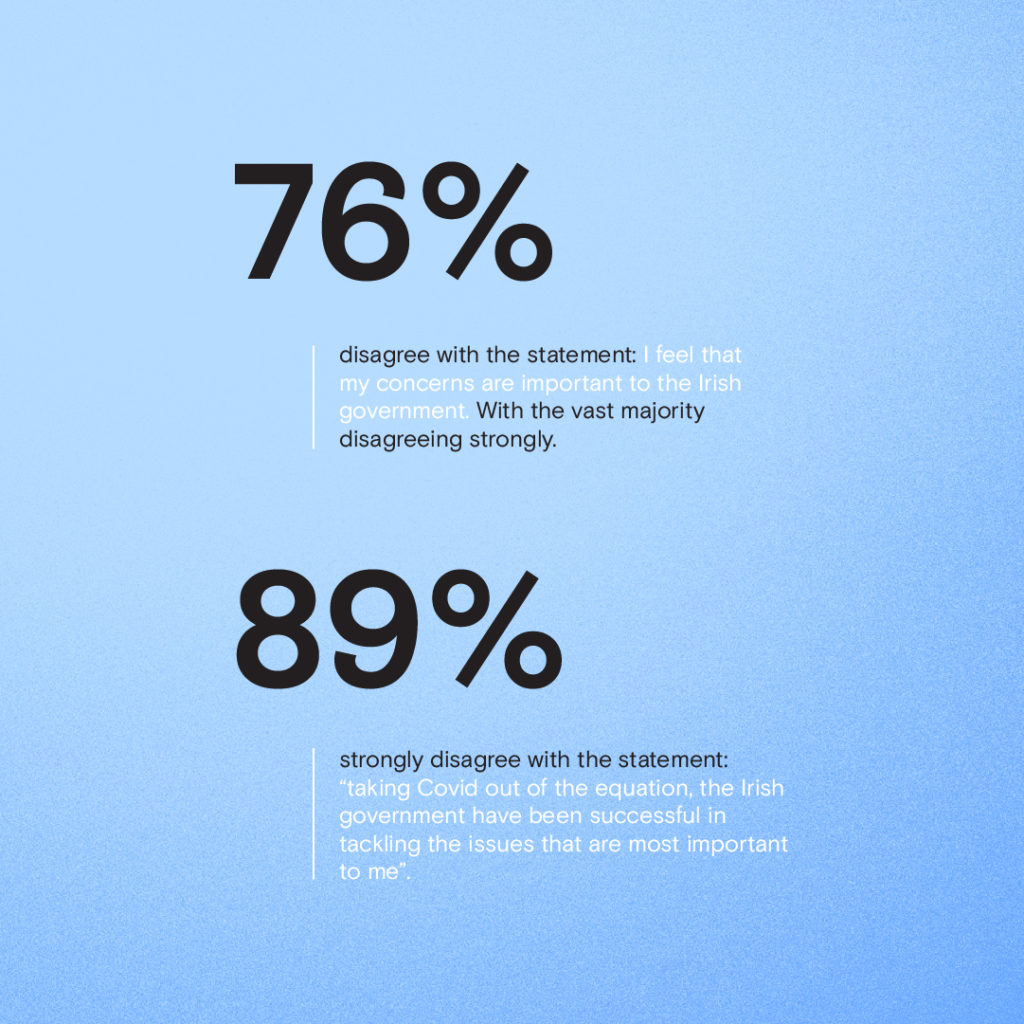
Whereas five years ago moving to London, Berlin or Lisbon might have been perceived as a risk, relocation is fast becoming a prudent matter of course for young people looking for a decent quality of life as they get priced out of their home city. In fact, 24% of our respondents have already had to leave Dublin over the last 18 months due to financial factors.
While emigration isn’t in and of itself a new phenomenon, what we are seeing is a drastic uptick in emigration coupled with the age of those seeking to emigrate getting younger. In fact, in response to our question on contemplating emigration, the rate of positives among the 18-24 demographic was even higher than the 25-34 age range at 89% versus 77%.
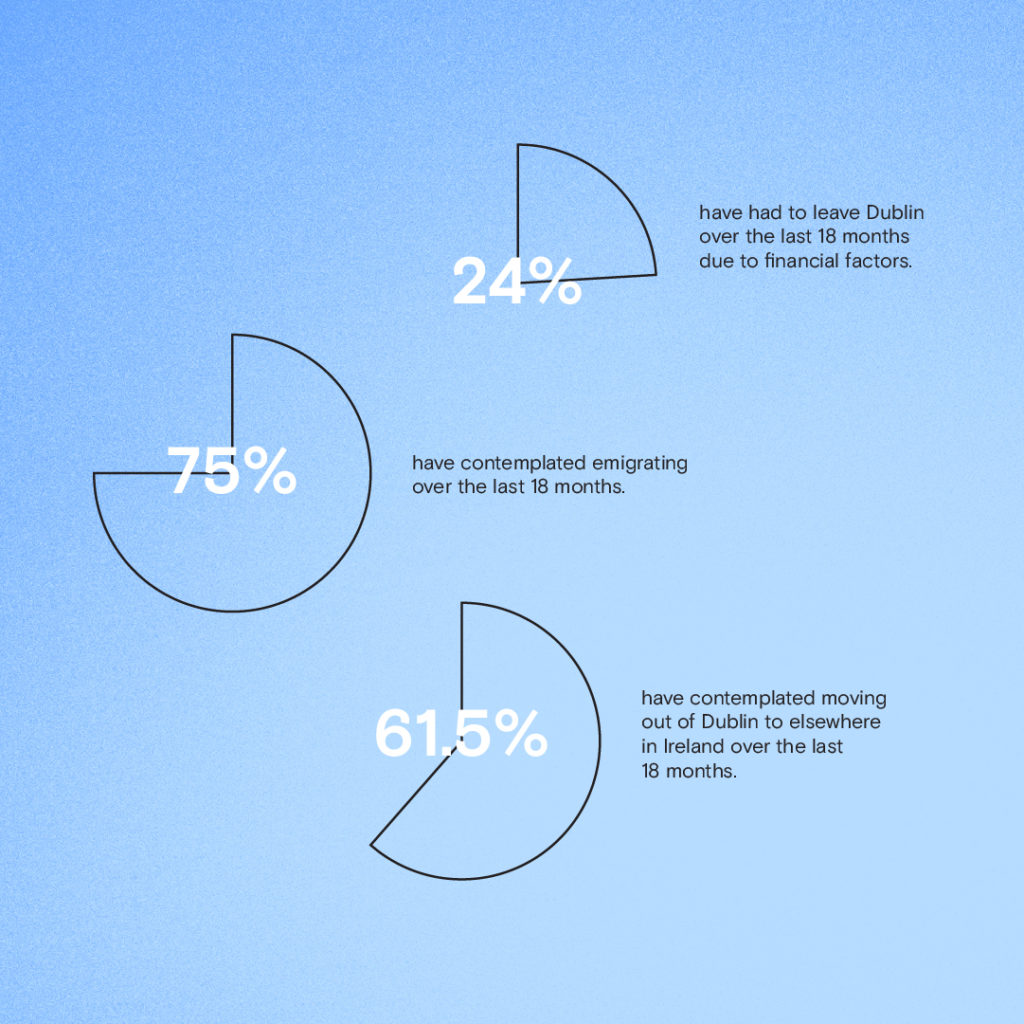
As a media company we have a responsibility not to be sensationalist or hyperbolic. However, we must also communicate a sense of urgency when we believe it is needed. To that end, we made a very intentional decision to describe the findings of this report as being grim and we stand by that statement.
However, it is important to state that we are not without hope and neither are our audience. In fact, despite the souring of social media, the lack of cultural spaces, and the punishing economic climate, we are seeing that our audience remains hopeful for the future. 41% of our respondents say that their outlook towards their future–while mixed– is overall positive. A further 11% describe their outlook for a post-pandemic world as entirely positive. Meanwhile, less than 10% describe themselves as entirely pessimistic.
As those wanting to engage with young people in Ireland it is important that we respect this hope. We must strive to look beyond the surface and ask ourselves if we are earnestly trying to improve these issues rather than merely maintaining the status quo. To that end, we are making a series of commitments for the coming year in order to live up to the hope that the youth of Ireland have held onto over the last two years, a hope that got so many through the hardest days of lockdown.
Commitments
1. Giving our channels over to groups and individuals in order to amplify their voices
2. Working with brands and organisations to create new– and revitalise old cultural spaces–
3. Creating more novel and meaningful cultural experiences
4. Encouraging brands to work with and support scenes rather than individuals
5. Continue applying pressure, spreading awareness, and educating our audience on key socio-economic issues through original journalism
6. Making an investment into our Art & Design channel in order to create Ireland’s first media platform for showcasing emerging talent in visual art
The Post Pandemic Report is available to download in full here.





